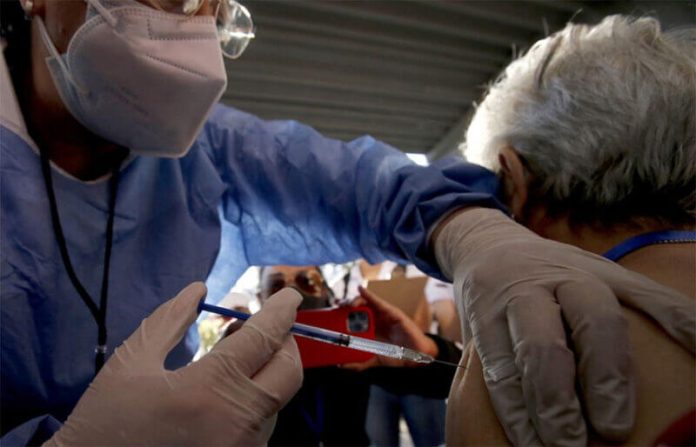So … who here is tired of the pandemic?
For a slightly and inexplicably lower number of raised hands, who’s tired of people refusing vaccines as the delta variant spreads like wildfire in a crisp haystack?
It’s an especially maddening development to witness since our own vaccine campaign here in Mexico seems to be moving at a snail’s pace. In my city of Xalapa, we’re currently in the middle of vaccinating the 30–39 age group — they’ve had their first shot, but the second hasn’t come up yet.
They’ve all received one of the Chinese Sinovac shots which, according to the World Health Organization, has an efficacy rate of 51%.
Although 51% is certainly better than the zero percent that no vaccine at all provides, I so wish the authorities had made a special effort for 30–39-year-olds to receive one of the more effective ones. That age group, after all, are some of the most active in the country. They’re very likely to have children at home and parents that are still alive, as well as to be economically and socially active.
And when might the 18–29 group be up for theirs? Hopefully soon, but I fear that it won’t be soon enough to stem the tide of this extra-fierce wave blazing through our communities.
And while I don’t have exact numbers about who is refusing the vaccine as these campaigns go on, anecdotally I know of plenty of people just in my city.
Like in the United States, vaccine hesitation or refusal — which in practical terms have the same result — seem to exist in an odd place in the Venn diagram where “all-natural is always best” types (in that case, why ever go to the doctor at all? Illness and dying are natural!) meet the “of course it’s true; I saw the proof in a WhatsApp message that it’s a form of government control/tracking/intentionally weakening the population!” people.
Spoiler alert: they don’t need to put a tracking device in you; your phone is a tracking device, and a very precise one at that. It even goes into the bathroom with you!
Meanwhile, quite a lot of people are getting sick and dying. And while this virus started out most gravely affecting older patients with pre-existing conditions, the new delta variant is making quick work of younger adults, teenagers and children.
And now, after a year of saying “I really think we should have kids in school and just obey safety measures there,” I’ve felt myself slowly backing away from the schoolroom door.
Now that AMLO has finally said “open the schools back up!” — after not seeming to have noticed that the schools being closed was hurting anyone — I’m worried about how vulnerable children might be in the face of this new strain.
I don’t know about you all, but I’m feeling two things keenly: helplessness and hopelessness.
I’ve had my second dose now (Pfizer); most of my friends have had at least one dose. There’s no telling when my child will be able to get a vaccine, but something tells me it could be quite a while as the trials make their way toward FDA approval in a way that’s considerably slower than the ones for adults.
No doubt their intention is to pre-cancel the arguments of “well, it was just approved too fast!” so that more parents would be inclined to take their children in for the shot, but I wonder if that will backfire since it will be giving the virus yet more opportunities to mutate and really hurt children in worse ways.
So what do we do in the meantime? At the very least, most Mexicans are compliant about wearing masks indoors, and many even wear them outside. I’ve also seen people wearing them alone in their cars. (Why? Did they forget to take them off?)
This is all in stark contrast to my home state of Texas, where the governor has made it illegal for anyone to demand that others wear masks and where scores of sick, unvaccinated coronavirus patients are filling hospitals — including pediatric hospitals.
So Mexico’s doing a pretty good job at wearing masks in public places, and very likely much worse on wearing them when around friends and family. Hopefully, the U.S.’s donation of 8.5 million vaccines will speed things up, but will it do so fast enough?
A glance at my state’s coronavirus statistics shows what you might expect: the highest number of cases are concentrated in populous urban centers. This is partly, of course, because there are simply more people living there. But for that very reason, wouldn’t it be great if we prioritized dense urban populations for those vaccines?
While we’re at it, could we demand that those working directly with the public either be vaccinated or subject to weekly testing like they’re starting to do in the U.S.?
I’ve heard some people compare the choice to get vaccinated or not with the choice to go through with a pregnancy or not. “My body, my choice.” On vaccines, however, I’d argue that refusing to get vaccinated is very much not just about one’s own body; it’s about all the bodies around you; it’s about your community.
When we first started quarantining in March, I remember saying to my daughter that surely things would be back to normal by the summer. Then my prediction moved to Christmas and then to summer again.
This summer started out promising, and I was already fantasizing about taking her to school. Now we’re in a nosedive again, and there’s not yet an end in sight.
Please, everyone, get vaccinated when you have the chance to.
Sarah DeVries is a writer and translator based in Xalapa, Veracruz. She can be reached through her website, sdevrieswritingandtranslating.com and her Patreon page.
